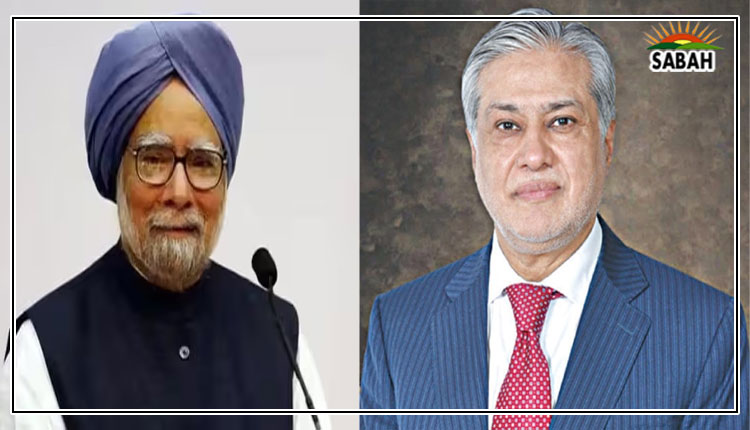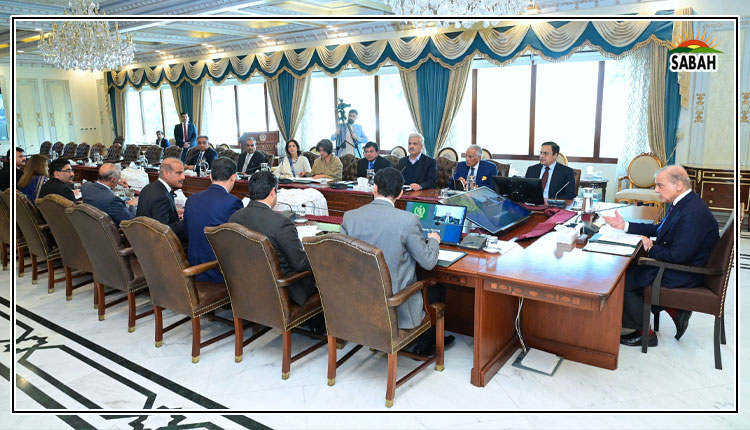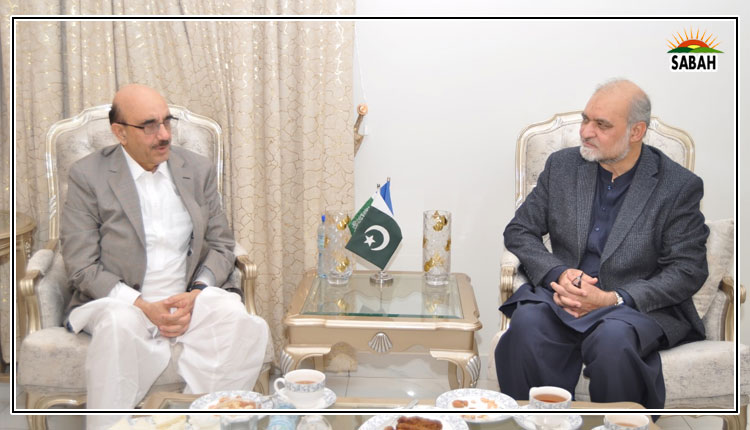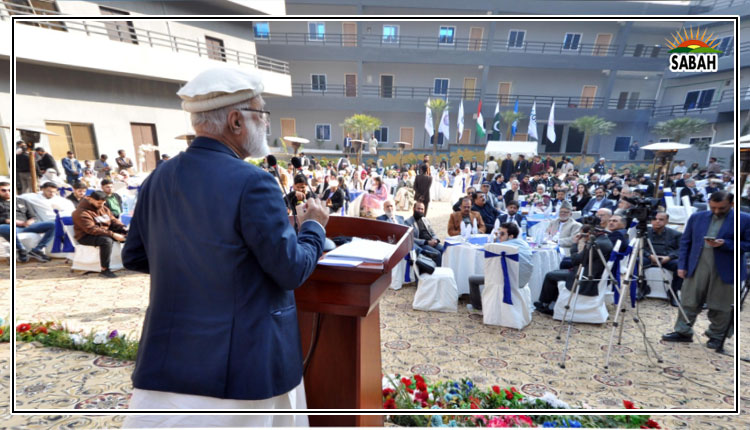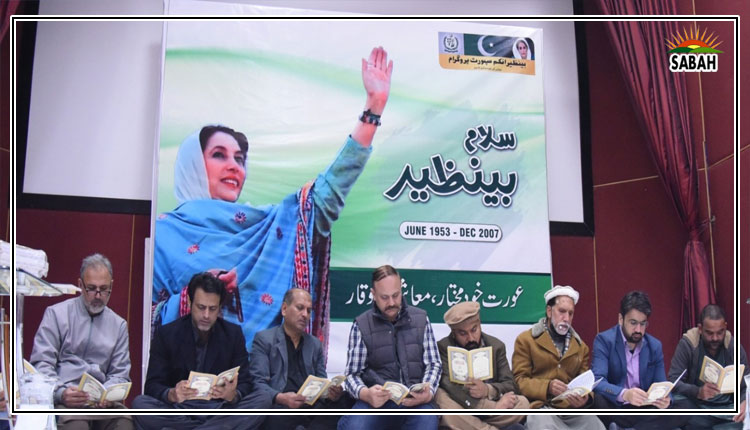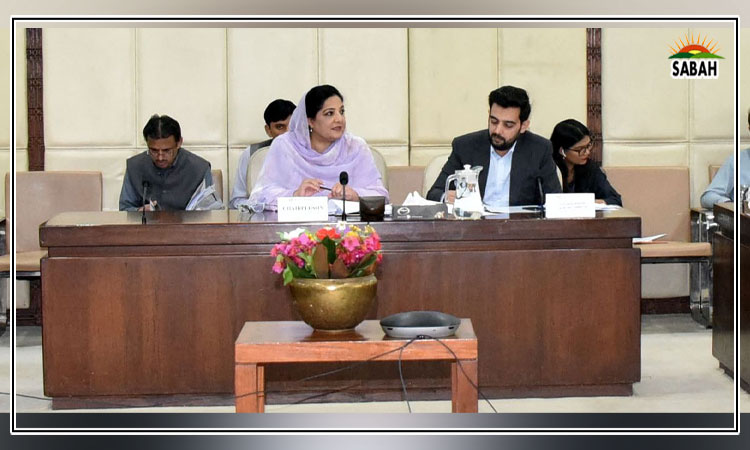Anusha Rahman emphasizes need for a thorough analysis of the factors complicating Pakistan’s export system
ISLAMABAD, Sep 07 (SABAH): The Senate Standing Committee on Commerce, chaired by Senator Anusha Rahman Ahmad Khan, met at Parliament House. In attendance were Senator Saleem Mandviwalla, Senator Bilal Ahmed Khan, Senator Faisal Saleem Rahman, Senator Muhammad Tallal Badar, Senator Sarmad Ali, The Federal Minister for Commerce, the Secretary for the Ministry of Commerce, the Special Secretary of the Ministry of Commerce, the Additional Secretary of the Ministry of Commerce, and other senior officials from relevant departments.
The meeting included a comprehensive discussion on the compliance status of the recommendations made by the Committee during its meetings held on July 3rd, 4th, 5th, 18th, and 19th, 2024. The Additional Secretary (Ministry of Commerce) informed the Committee that the compliance report had been shared. Reviewing the impact assessment report of Free Trade Agreements (FTAs) and Preferential Trade Agreements (PTAs), Senator Anusha Rahman, the Committee Chairperson, highlighted the challenges faced by exporters, particularly with trade dispute resolution under FTAs and PTAs. She added that when exporters face default issues, they are often required to initiate legal proceedings in importing countries, which has serious financial consequences. While some FTAs contain provisions for dispute resolution, these have not been effectively implemented. She emphasized the need for a thorough analysis of the factors complicating Pakistan’s export system and negatively impacting its exports. She reiterated Prime Minister Shehbaz Sharif’s commitment to Export-Led Growth, which requires the assurance of seamless export processes, to be overseen by the Ministry.
Overruling objections from the Ministry and the Trade Development Authority of Pakistan (TDAP), the Committee unanimously ratified the membership of Senator Bilal Ahmed Khan to the TDAP Board. The Committee members expressed strong disapproval of the Ministry’s response, which cited Sections 11(h) and (i) of the State Owned Enterprises (SOE) Act, 2023, as disqualifying parliamentarians from serving as independent directors on boards. The Chairperson of the Committee contended that TDAP is not a state-owned enterprise but an authority, and thus, the provisions of the SOE Act 2023 do not apply. Furthermore, the disqualifications under the SOE Act 2023 pertain to private sector members on a board, not to parliamentarians who are appointed ex officio.
Additionally, Ministry officials briefed the Committee on the policy regarding the re-export of motor vehicles from Pakistan and delivered a presentation outlining the region-specific scale of exports and prospects. They also discussed initiatives undertaken for 18 exhibitions and events for the promotion of non-traditional products to both existing and new markets during 2023-2024. Senator Anusha Rahman, along with other Committee members, recommended that a list of participants and the business generated from each exhibition be submitted to the Committee.
While praising the youth of Balochistan and Sindh for their entrepreneurial efforts in leading their startups, Senator Rahman acknowledged the significant number of startups emerging from these provinces. She emphasized that a quota should be reserved for startups from Balochistan, KPK, AJK, GB, and Sindh to provide youth with sustained support through the TDAP platform for gaining appropriate exposure. Additionally, she suggested collaborating with ITCN (Information Technology and Telecommunication Network) and organizing a conference in Pakistan for IT sector startups and companies to enhance their global visibility.
The Committee also discussed the export of donkey hides and meat, which has been banned since November 2023. The Committee emphasized that resolving these issues could not only attract foreign exchange but also generate employment.
In her closing remarks, Senator Rahman stressed the importance of implementing enabling Articles in FTAs that provide a mechanism, through joint committees, to find amicable solutions to disputes between commercial entities via nodal chambers. She urged the Ministry to focus on creating dispute resolution mechanisms for commercial entities as provided in FTAs and to activate the newly formed Trade Dispute Resolution Organisation to fully realize the benefits of FTAs and PTAs.



